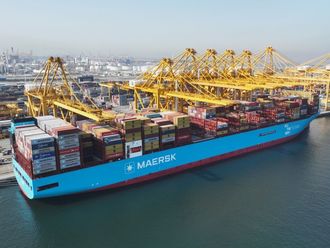London: Global stocks rose Thursday after Federal Reserve chairman Ben Bernanke promised to keep supporting the US economy.
Bernanke said the US needs “highly accommodative monetary policy” - or low interest rates - “for the foreseeable future.” That reassured investors who were dismayed by Bernanke’s comments last month that the Fed would likely slow its bond purchases later this year and end them around mid-2014 if the economy strengthens. Critics said the Fed bungled its communications strategy.
US stocks Thursday surged higher, following global equity markets that greeted fresh comments from Federal Reserve Chairman Ben Bernanke that monetary policy would remain accommodative until the economy improves.
Five minutes into trade, the Dow Jones Industrial Average jumped 152.88 (1.00 per cent) to 15,444.54.
The broad-based S&P 500 rocketed 17.65 (1.07 per cent) higher to 1,670,27, while the tech-rich Nasdaq Composite Index rose 40.11 (1.14 percent) to 3,560.87.
Bernanke, responding to questions following a speech in Boston, said “highly accommodative monetary policy for the foreseeable future” was needed given the weak labor market and low inflation.
Bernanke’s comments made clear that while the Fed may taper its bond-buying programme this year, such a move did not imply a rise in interest rates.
Leading Asian equity markets rose as did European exchanges, with Germany’s DAX index up 1.1 per cent and France’s CAC 40 index up 0.8 per cent.
The Fed has been buying $85 billion of financial assets a month to keep interest rates low and encourage borrowing and spending. That stimulus has driven global stocks higher, so the prospect of reducing it caused market volatility in recent weeks.
“In one short and sweet statement, Federal Reserve chairman Bernanke has flicked a switch on the markets,” said strategist Evan Lucas of Australia’s IG Markets in a report.
In Europe, Germany’s DAX rose 1.2 per cent to 8,163.64 and France’s CAC-40 gained 0.9 per cent to 3,874.19. Britain’s FTSE 100 rose 0.8 per cent to 6,554.21.
Commodity stocks were the big gainers, as the promise of more support to the US economy, the world’s largest, suggested greater demand from consumers and industry. Oil rose to trade briefly above $107 a barrel, near the highest level in more than a year, before easing back down. After soaring $2.99 the day before, it was down $1.15 on Thursday, at $105.37.
Wall Street opened higher, adding to the previous day’s gains. The Dow was up 1 per cent at 15,437.65 while the broader S&P 500 was 1.1 per cent higher at 1,669.73.
A rise in US jobless claims figures - by 16,000 to a total of 360,000 - failed to move markets much. The level is consistent with steady hiring, though the increase suggests the recovery is still not as fast as hoped.
In Asia, gains were stronger than anywhere else. The Shanghai Composite Index jumped 3.2 per cent to 2,072.99, its biggest gain in nearly seven months, while Hong Kong’s Hang Seng rose 2.6 per cent to 21.437.49. Tokyo’s Nikkei 225 added 0.4 percent to 14,472.58.
Markets rebounded from caution a day earlier when unexpectedly weak Chinese trade figures that suggested the world’s second-largest economy is slowing more abruptly than forecast.
Elsewhere, Taiwan’s Taiex gained 1.8 per cent to 8,154.05 and Sydney’s S&P/ASX 200 rose 0.8 per cent to 4,940.20. Markets in Singapore, Manila and Jakarta also rose.
In currency markets, the dollar stabilized after falling on expectations that the Fed’s monetary policy will remain loose for the time being. Looser monetary policy tends to weaken a country’s currency.
The dollar was trading at 99.22 yen compared with late Wednesday’s 98.83 yen. The euro was down somewhat, at $1.3038 from $1.3140.












